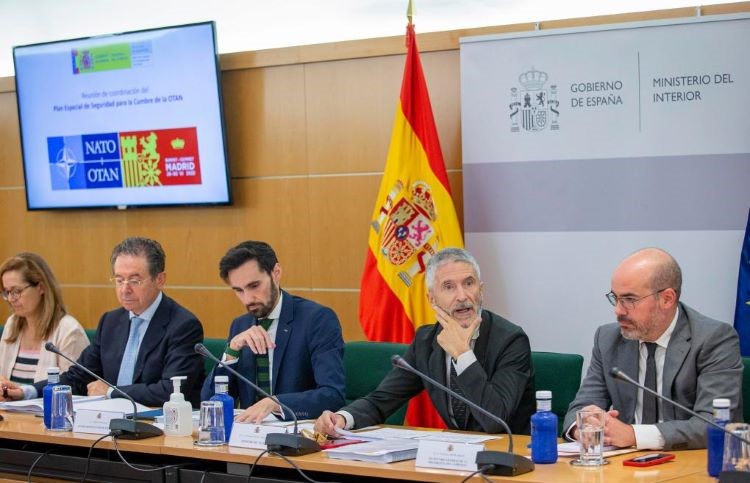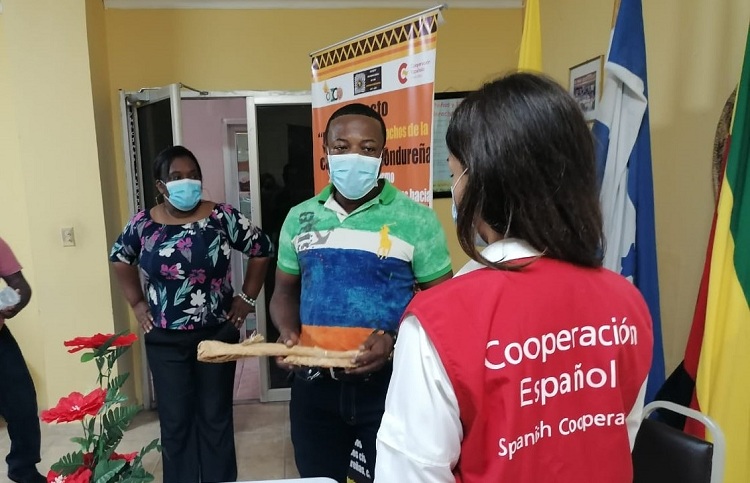The Diplomat
The Minister of the Interior, Fernando Grande-Marlaska, chaired yesterday the coordination meeting of the security arrangements for the NATO Summit on June 29 and 30 in Madrid, for which almost 9,000 agents will be deployed, including national police and civil guards.
The NATO Summit, which will bring together more than 40 world leaders – pending to know if the President of Ukraine, Volodimir Zelenski, participates in person or by videoconference – will be held at the IFEMA site on June 29 and 30. This event coincides with the 40th anniversary of Spain’s accession to the Atlantic Alliance and will address issues such as Russia’s invasion of Ukraine, the possible accession of Finland and Sweden and the definition of the Madrid Strategic Concept, a document that will mark the future of the organization for the next ten years.
“The summit is an opportunity for Spain. The success of the summit will be the success of Spain, the success of all Spaniards,” the minister declared yesterday during the follow-up meeting of Operation Eirene, the special security device coordinated by the Ministry of the Interior in collaboration with the Ministry of the Presidency and the NATO Security Office and which contemplates specific plans for cybersecurity and protection of essential infrastructures.
“It will also be an event of great relevance for the future in freedom of the Atlantic community and our strategic partners”, added Grande-Marlaska before the more than thirty representatives, including the Royal House, the Presidency of the Government and the Ministries of the Interior, Defense, Foreign Affairs and Cooperation, as well as the Community of Madrid, the City Council of the capital and the Government Delegation in Madrid.
According to the Ministry informed in a press release, a total of 8,950 agents – 6,550 national police officers and 2,400 civil guards – will participate in Operation Eirene, “the largest security device in the recent history of Spain”, which will also be joined by members of the Municipal Police and the Madrid Fire and Emergency Service. Besides, the Ministry of the Interior’s Cybersecurity Coordination Office will coordinate a specific device to monitor, protect and respond to possible cybersecurity incidents and will liaise with other Ministries’ agencies in charge of this issue, such as the National Cryptologic Center of the Ministry of Defense.
According to Interior sources told the Europa Press agency, the Summit site will be completely shielded and alternative routes will be opened for the delegations and evacuation areas will be duly identified. Although no specific threats have been detected so far, Interior will maintain the level 4 -out of 5- of Anti-terrorist Alert. Likewise, the National Police will deploy its drone system and the Ministry of Defense will be in charge of determining what restrictions are imposed in the airspace. Border controls have also been tightened, including some Schengen treaty restrictions, to prevent the entry of radical elements. No military presence on the streets is foreseen in principle.
One of the main objectives of the National Police is to guarantee the security of the approximately 5,000 participants in the Summit without interrupting the normal life of the people of Madrid or impeding the right to demonstrate of all those who wish to mobilize against NATO. However, all indications are that acts of protest will be prohibited at the IFEMA site.







